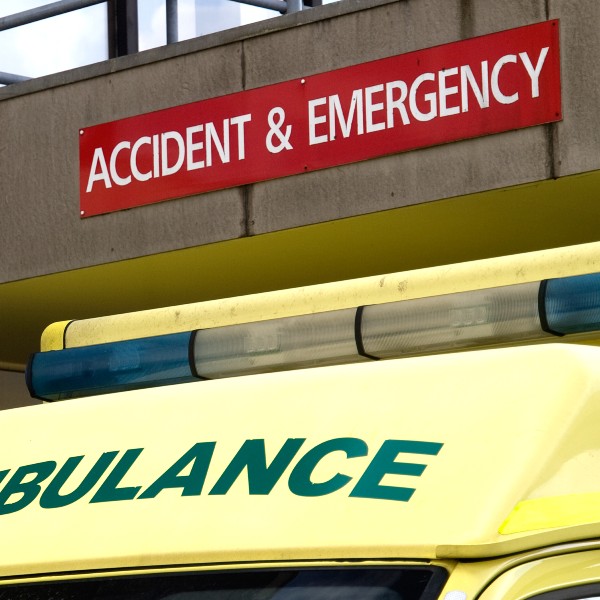Utilisation Management
Impact Report 2020-21
The Utilisation Management team works partnership with NHS organisations and other health and care settings. The UM team help to improve outcomes by making patients’ care better, and health care professionals’ lives easier.
The team comprises of highly qualified Information and Data Analysts, working alongside highly experienced senior Registered Nurses with Emergency and Acute Care experience, and quality improvement expertise. This enables the UM team to bring a blend of industryleading analytics, frontline experience and an independent viewpoint to every situation.
The UM team have been part of the NHS since 2003 and have an established reputation as pioneers in the field of clinically-led analytics, delivering bespoke analytics and evidencebased strategies to aid place-based service and pathway improvement.
As part of HInM, the team taps into the latest technologies and innovations that are enhancing patient care, drawing on expertise across the huge network of the Greater Manchester health research community.
During 2020-2021, the team have been providing vital support to urgent and emergency care and COVID-19 coordination across Greater Manchester. This involved working collaboratively with multiple organisations across Greater Manchester to ensure pathways across urgent and emergency care are safe for patients and staff, as well as being and sustainable during and after COVID-19.
This has included the COVID-19 urgent and emergency care response in hospitals and the community, as well as supporting the Greater Manchester Clinical Assessment Service. The team have also provided clinical and analytical support to projects within HInM, including the acceleration of the GM Care Record and the digital care homes programme.
Case study: Supporting learning from the COVID-19 pandemic

The UM team collaborated with multiple organisations to examine the impact of COVID-19 and excess deaths during the first wave of the pandemic in order to facilitate learning and system improvements.
The team supported a detailed analysis of 543 ‘all cause’ deaths occurring in the first peak of the pandemic, to highlight emerging themes that could inform future urgent and emergency care policy or guidelines. This included reviewing the circumstances surrounding the patient’s death, including 111 or 999 calls, GP encounters and remote consultations, hospital records and community visits and providing a narrative summary and contributing factors. Cases were peer reviewed by a senior clinical panel including hospital consultants and general practitioners. Areas for improvement in the management and care of patients were identified, such as speed of COVID-19 testing, the importance of seeking early assessment from NHS services, the identification of at risk groups as well as areas of outstanding care.
The review supported a rapid locality and system response, including encouraging patients to use NHS services, adopting COVID Oximetry @home services and proactive monitoring or additional support for at-risk groups. The work is due to be published in a peer reviewed journal in 2021.
“This was a unique opportunity to review the comprehensive clinical records of the patients involved in this study, expertly collated, reviewed and presented by Utilisation Management Unit Senior Nurses. This enabled key insights to be fed back to the health and social care leadership in GM to ensure safer care. Valuable, insightful lessons were learned, and actions put into place regarding safety immediately, ensuring clinical assessment, decision making and compensating for social inequalities when planning service change could be actioned. There was also an acknowledgement that this review provided clear demonstration of the value of good, responsive end of life care.” Dr David Ratcliffe, Urgent Care lead for Greater Manchester Health & Social Care Partnership
Case study: Urgent and Emergency Care by Appointment – Implementation of a Pre-Emergency Department Assessment Service model

In August 2020 the UM Unit were commissioned by gtd Healthcare to support their organisation with their contribution to the Oldham system Urgent and Emergency Care (UEC) by Appointment Programme of work, specifically the design and mobilisation of a Pre-Emergency Department (ED) Assessment Service in-line with recent GM regional guidance.
This service would be required to rapidly assessment patients who self-present at the Royal Oldham Hospital, part of Pennine Acute Hospitals NHS Trust, with a requirement for urgent care and signpost these patients to an appropriate service in the Oldham system as clinically appropriate.
The UM Unit collaboratively engaged operational, clinical and managerial colleagues from gtd Healthcare, the NHS Trust and the Clinical Commissioning Group to map patient pathways and design a clinically safe and effective Pre-ED Assessment Service model.
The team utilised recent guidance and available patient activity data to develop a robust patient assessment process delivered by a team of highly experienced clinicians and administrative staff from gtd Healthcare.
In accordance with GM guidance, the resulting ‘two door model’ of assessment was mobilised which saw patients presenting to the hospital site, being rapidly assessed and directed to the gtd Healthcare clinicians in the Pre-ED Assessment Service (the Blue Door) or indeed as appropriate signposted directly to the emergency department (the Red Door) according to the acuity of their presentation. This provided a rapid, appropriate and clinically safe assessment process for patients self-presenting at the hospital site.
The GM regional team had set a standard requirement for Pre-ED Assessment of 25% of self-presenting patients should be assessed and signposted to services other than ED as clinically appropriate. The gtd Healthcare team in association with the Trust initially completed three ‘test of change’ days for the Pre-ED Assessment service model.
The data analysis for these three days showed a deflection of greater than 30% of patients who self-presented during the 12 hours of service operation on each of these days. The UM Unit provided an analysis report of these ‘test of change’ days and following review of this by Oldham CCG’s Urgent Care Board, the Pre-ED Assessment Service has been formally commissioned from gtd Healthcare.
Case study: Discharge to Assess – Impact of Community Capacity on Hospital Flow

Greater Manchester Winter Gold command asked if it was possible to better understand the impact of changes in community capacity on patient flow and acute bed capacity. This followed recent events where significant amounts of capacity had been lost within the community due to COVID and the high likelihood that this would re-occur.
The UM Team was asked to develop a method of testing phase 3 planning assumptions using different scenarios at a locality level. The aim was to create a modelling tool that would help to support a whole system discussion and improve understanding of how small or large changes in community capacity would affect patients waiting for discharge and acute bed occupancy.
The UM Team developed an iterative tool for localities to run scenarios to see the impact of various changes in the availability of community bed and enablement pathways.
These were based on the Discharge to Assess Pathways and a queuing model using R with a front-end Tableau dashboard was created. Users can adjust number of daily discharges for each pathway, length of stay in community bed, daily caseload and duration of reablement. It enabled users to better understand the impact changes in community capacity could have on hospital flow and support contingency discussions.
“It helped people to understand the impact of what may seem a small number of beds out of hospital making a big difference to flow in hospital. It helped to support discussions of “what if?” contingencies. It has led to other discussions about issue relating to or impacting on flow and what can be done to support, for example how to flex IMC capacity, and ensure there is not double count IMC bed capacity when pushing community rapid response to step up, as it will mean less beds to step down into.” Zeph Curwen, Divisional Managing Director, HMR Division of Integrated Care & Rochdale Infirmary
Read the rest of the 2020-2021 Impact Report
Use the image links below to move between the different sections of the report.









